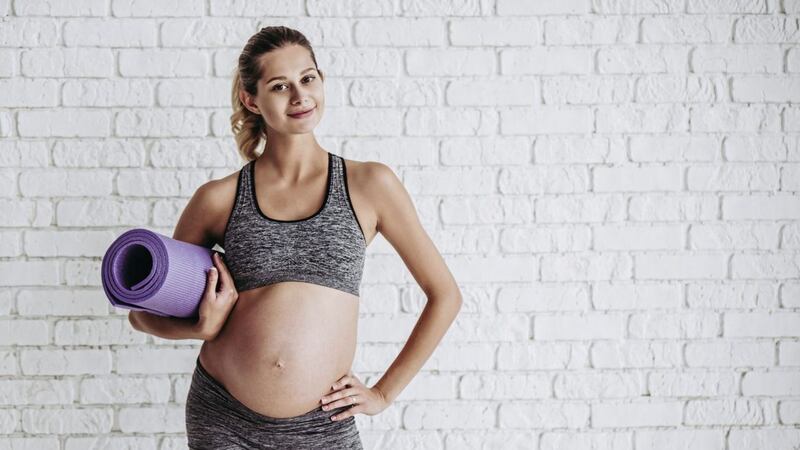WHEN you're pregnant – particularly for the first time – it's easy to feel bombarded with conflicting advice from well-meaning friends and family, not to mention healthcare experts, books and the internet, about what to eat and how (or whether at all) to exercise.
When you're coming across mixed messages, which do you follow? First and foremost, the most important thing is to speak to your own doctor, midwife and health visitor about any queries or concerns. And keep in mind that everybody's pregnancy and health needs can be slightly different, so it's vital to get the advice that's best for you.
That said, there are some general themes and guidelines that frequently crop up – and knowing what to believe isn't always clear.
"Pregnancy is a hugely exciting time for everyone but you might find that as soon as you mention you're pregnant, you're inundated with advice, old wives' tales and endless lists of things you can and can't do," says Frida Harju-Westman, nutritionist for health app, Lifesum (lifesum.com). "When it comes to nutrition, it's essential that you decipher fact from fiction, as so much of the baby's growth is tied into what you eat."
Here are five of the most common pregnancy diet and exercise 'myths' and Harju-Westman's take on them:
1. Eating for two: Pregnancy is the perfect excuse to eat as much as possible of whatever you like, right? Wrong. You don't actually need to have more than your usual calorie intake during the first trimester – only increasing calories towards the middle half of the second and then into the third trimesters. Harju-Westman explains: "The logic here is simple – while you're technically eating for two, only one of the two is a grown human; a baby doesn't need as many calories as an adult."
It is true, however, that there are some foods that are best avoided during pregnancy due to the associated risks from harmful microbes. These include some soft cheeses, pates, raw meat or fish, and raw or partly cooked eggs.
2. No coffee: When it comes to pregnancy and coffee, the lines are a little blurred. Some say you shouldn't have coffee at all, while others say your usual amount is fine (within reason!). According to a 2015 study by the European Food Authority, pregnant women can have 200mg of caffeine per day, which is the equivalent of two mugs of instant coffee (the NHS give this advice too).
3. Forget fish: Opinions on fish are split. Harju-Westman says it's true that some fish containing high levels of mercury should be avoided during pregnancy, but pregnant women can safely enjoy anchovies, clams, crab, haddock, hake, herring, mackerel, oysters, salmon, scallops, shrimp and calamari. However, it's best to avoid tuna, sea bass and swordfish, as these contain high levels of mercury.
The NHS suggests no more than two portions a week of oily fish and Harju-Westman warns that pregnant women shouldn't eat sushi.
4. Eliminate exercise: For many years, women were told they should stop all exercise as soon as they find out they're pregnant, and just relax. "This is definitely a myth," Harju-Westman says, "as exercise not only helps us stay fit and healthy, but it also makes us happier and makes it easier to get back in shape after birth."
The Royal College of Obstetricians and Gynaecologists, the National Childbirth Trust (NCT) and the National Institute for Health and Care Excellence (NICE) all recommend moderate exercise – to help reduce the risk of gestational diabetes, cardiovascular disease and excess gestational weight gain.
Of course, it's still important to be sensible – nobody is suggesting you embark on a brand-new intensive fitness regime for the first time ever when you're pregnant. Most exercise you did before pregnancy though will be safe, but check with your doctor or midwife.
You might find you become breathless or feel hot more quickly during pregnancy: As a general rule, a light to moderate level should allow you to hold a conversation as you work out. If you become breathless as you talk, you may be exercising too strenuously.
5. Drop the salt: A common myth around pregnancy is that salt contributes to swelling, says Harju-Westman. "First of all, some swelling during pregnancy is absolutely normal, but if you're concerned, you should really look at your overall diet to make sure you're getting enough protein and water, as well as rest."
She says sodium is an important electrolyte which helps the body regulate fluids, and as a woman's sodium metabolism can be affected by hormones, she should try to have the general recommended amount – that's a total intake of no more than 6g of salt a day (2.4g sodium).








